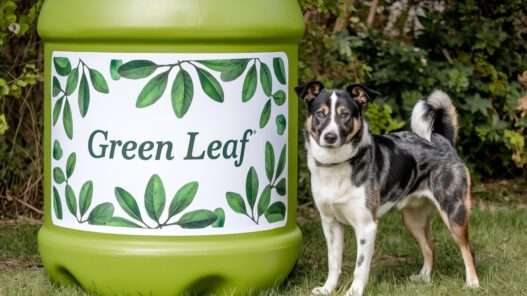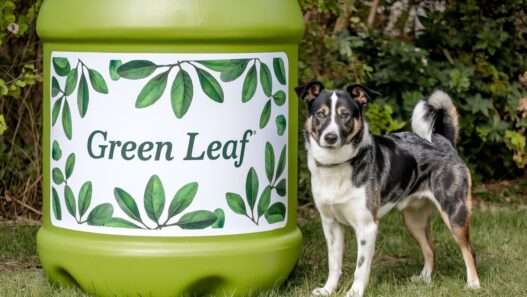Dogs should not eat mustard, as it contains ingredients that can be harmful to them. Mustard seeds themselves can be toxic and may cause gastrointestinal distress, including vomiting and diarrhea. Additionally, mustard often includes spices and additives such as garlic and onion powder, which are known to be harmful to dogs. The high salt content in mustard can also contribute to salt poisoning if consumed in large amounts. If a dog accidentally ingests mustard, it’s important to monitor them for any signs of distress and consult a veterinarian if they exhibit symptoms like vomiting or diarrhea.
Is mustard bad for dogs?
– Toxic Ingredients: Mustard seeds can be toxic to dogs, potentially causing gastrointestinal distress.
– Harmful Additives: Mustard often contains spices like garlic and onion powder, which are toxic to dogs.
– High Salt Content: The high salt levels in mustard can lead to salt poisoning if ingested in significant amounts.
– Gastrointestinal Issues: Consuming mustard can result in symptoms such as vomiting, diarrhea, and abdominal pain.
– Overall Safety: It’s best to avoid giving mustard to dogs due to these health risks.
Can dijon mustard go bad?
Yes, Dijon mustard can go bad over time. While it has a long shelf life due to its acidic nature and preservatives, it can eventually spoil. Signs that Dijon mustard has gone bad include changes in color, an off smell, or an unusual texture. If the mustard develops mold or shows any signs of fermentation, it’s best to discard it. To ensure it stays fresh for as long as possible, store Dijon mustard in a cool, dry place and keep it tightly sealed. If you’re unsure whether your mustard is still good, it’s always safer to check for these signs or consult the expiration date on the packaging.
Can dogs have mustard?
Dogs should not have mustard. Mustard contains ingredients that can be harmful to dogs, such as mustard seeds, which can be toxic and cause gastrointestinal issues. Additionally, mustard often includes spices like garlic and onion powder, both of which are known to be toxic to dogs. The high salt content in mustard can also be problematic, potentially leading to salt poisoning if consumed in large amounts. Overall, it’s best to avoid giving mustard to dogs and stick to foods specifically designed for their dietary needs.
Dogs and Mustard:
Dogs and Mustard: Understanding the Risks and Safety Considerations
Mustard, a common condiment used in a variety of dishes, is not a suitable food for dogs. While it might seem harmless as a small component in human diets, mustard contains several ingredients and properties that can pose significant health risks to dogs. This essay will explore why mustard is unsuitable for canine consumption, including its toxic ingredients, potential for gastrointestinal issues, and general safety considerations.
Toxic Ingredients
One of the primary reasons mustard is not appropriate for dogs is due to the presence of mustard seeds, which can be toxic to them. Mustard seeds contain compounds that can cause adverse reactions in dogs, including vomiting, diarrhea, and abdominal pain. In addition to mustard seeds, mustard often includes other ingredients such as garlic and onion powder. Both garlic and onions contain compounds that are harmful to dogs and can lead to serious health issues. Garlic, for example, can cause gastrointestinal upset and damage red blood cells, leading to anemia. Similarly, onions can be toxic, potentially causing symptoms such as lethargy, weakness, and even more severe health problems if consumed in significant amounts.
High Salt Content
Another concern with mustard is its high salt content. Excessive salt intake can lead to salt poisoning in dogs, which can be dangerous. Symptoms of salt poisoning include increased thirst, frequent urination, vomiting, diarrhea, and in severe cases, seizures or neurological symptoms. The high salt content in mustard makes it an unsuitable food item for dogs, especially if consumed regularly or in large quantities.
Gastrointestinal Issues
Mustard’s acidic nature and its mixture of spices can also lead to gastrointestinal issues in dogs. Even small amounts of mustard can irritate a dog’s digestive tract, causing symptoms such as nausea, vomiting, or diarrhea. Dogs have more sensitive digestive systems compared to humans, and what is mildly irritating for us can be significantly more problematic for them. Consuming mustard could disrupt their digestive balance and result in uncomfortable or painful symptoms.
General Safety Considerations
Given these risks, it is advisable to avoid giving mustard to dogs altogether. While some may argue that small, occasional amounts might not cause harm, it is not worth the risk, especially when there are so many safer alternatives for treating and enriching a dog’s diet. Instead of mustard, pet owners should consider providing dog-safe treats and foods that are specifically formulated to meet canine dietary needs.
In conclusion, mustard is not a suitable food for dogs due to its toxic ingredients, high salt content, and potential to cause gastrointestinal issues. Ensuring that dogs do not consume mustard or similar condiments is crucial for their health and well-being. Pet owners should always prioritize foods and treats that are safe and beneficial for their pets, avoiding human foods that can pose health risks.
If a dog accidentally consumes mustard or any other potentially harmful food, it is important to monitor them for any adverse symptoms and consult a veterinarian for advice.






























I love how your posts are always so well-structured and easy to follow. Keep it up!
I\’m impressed by your writing style and the depth of your knowledge on this topic.
Thank you! I\’m thrilled that you found the post valuable. Your support means a lot.
I\’m so glad I found your site. Your posts are consistently excellent.